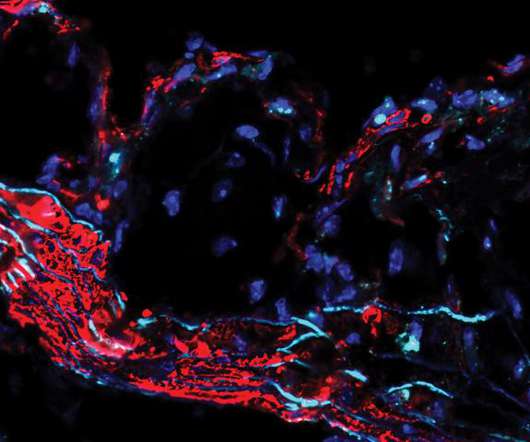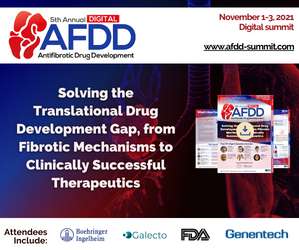Scientists find genetic link to clogged arteries
Scienmag
MARCH 31, 2021
But now, scientists at Washington University School of Medicine in St. […].

Scienmag
MARCH 31, 2021
But now, scientists at Washington University School of Medicine in St. […].

Scienmag
MARCH 25, 2021
Decade-long search uncovers genes responsible for lacunar strokes, a major cause of vascular dementia Scientists have identified new genetic clues in people who’ve had small and often apparently ‘silent’ strokes that are difficult to treat and a major cause of vascular dementia, according to research funded by the British Heart Foundation (..)
This site is protected by reCAPTCHA and the Google Privacy Policy and Terms of Service apply.

Scienmag
MAY 18, 2021
Scientists link genetic makeup of bacteria in the human gut to several human diseases We are truly never alone, not even within our own bodies. Human beings play host to trillions of bacteria, fungi, viruses, and other microorganisms that make up the human microbiome.

The Pharma Data
OCTOBER 27, 2021
Appointment further strengthens Board scientific capabilities, including in genetics which is central to GSK’s R&D approach. Dietz MD, Professor of Genetic Medicine at The Johns Hopkins University School of Medicine in the United States, will join the Board of the Company as a Non-Executive Director. Dr Hal Dietz is Victor A.

Scienmag
OCTOBER 15, 2020
Benoit Bruneau and Katie Pollard study DNA folding to identify the genetic causes of congenital heart disease Credit: Photo: Gladstone Institutes SAN FRANCISCO, CA–October 15, 2020–The National Institutes of Health (NIH) has granted a 4D Nucleome award to support research by a group of scientists at Gladstone Institutes led by Benoit Bruneau, (..)

pharmaphorum
AUGUST 13, 2020
Adding in Regeneron’s antibody resulted in a 49% drop in cholesterol levels from the start of the study compared to patients sticking with their current therapy alone, according to results presented earlier this year at the American College of Cardiology’ congress in March.

Scienmag
JUNE 17, 2021
Researchers from University of Tsukuba, Japan, collaborating with scientists from Germany, develop a mouse model for restrictive cardiomyopathy and uncover the underlying mechanisms of the disease Ibaraki, Japan – Severe childhood restrictive cardiomyopathy is a condition that causes the muscles in the walls of the heart to become stiff, so that (..)
Let's personalize your content